Manga Review: Bakuman
Today I’d like to review… a manga about manga. That’s right, you heard me. Much lighter and more positive in tone, Bakuman is a series that IMO gets too little love in comparison to its predecessor, Death Note.
Overview
| Name: | Bakuman |
| Author: | Ohba Tsugumi (writer), Obata Takeshi (artist) |
| Genre: | Comedy, Drama, Romance, School Life, Shounen, Slice of Life |
| Summary: | Average student Moritaka Mashiro enjoys drawing for fun. When his classmate and aspiring writer Akito Takagi discovers his talent, he begs Moritaka to team up with him as a manga-creating duo. But what exactly does it take to make it in the manga-publishing world? |
| Links: | Baka-Updates profile Purchase Bakuman in English on Amazon Read Bakuman in English on KissManga (low quality scanlations) Read Bakuman in Chinese on SFACG |
Artwork

Various manga within the Bakuman manga, each with its own “style”
The artwork is solid. The lines are clean and sharp, and we often get sneak peeks of the “manga in the manga” which the protagonists are drawing. Obata sensei has gone out of his way to make sure each made-up manga has its own style, which I really appreciate.
On top of that, all the characters are clearly distinguishable! One of my biggest pet peeves is characters that all look the same, and with over a dozen “regular” characters and an office setting Bakuman seems particularly vulnerable to this problem, but it passes with flying colors. 🙂 Exaggerated character design and action shots also manage to make drawing manga look relatively exciting, and at no point am I left bored by the art.
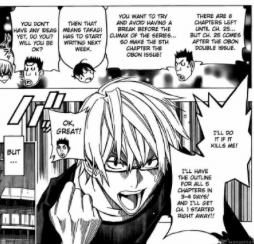
Plenty of text
The downside is that the subject matter has its limitations. Panels tend to be more square in their layout, and you really aren’t going to get any exotic settings, fancy outfits, or full-on battle scenes, all of which we know Obata sensei is more than capable of from series such as Ral Ω Grad and All You Need Is Kill. There is also a lot of text. Editors dump large doses of information regarding how the industry works, and many “manga battles” end up being idea-based, which is also conveyed through text. It’s a bit like Liar Game in this regard, so long story short, if you don’t like text, this is not your jam.
Lastly, I want to address fan complaints that the background art gets worse as the series progresses, which I haven’t noticed at all. I suspect this may be more about scanlation quality than it is about actual artwork, but c’mon, let’s face it. In a story where 90% of the setting is the same old studio, who cares about backgrounds anyway?!
Story
The story of Bakuman is incredibly intense and page-turning for the first half, slows down somewhat about 2/3rds in, but ultimately pulls together into a satisfying finish. It does a great job of balancing plot and gag comedy, and overall maintains an optimistic tone. I want to note that while romance is threaded throughout, it’s really not about the romance. At all. In fact, most of the romance is purely there for comic relief, and if you’re looking for good romance, I suggest you look elsewhere – Bakuman’s real focus is on chasing your dreams, and it’s done a damn good job on that, if nothing else.
Now, I do have some issues with how gender roles are represented in Bakuman. The cliffhanger endings also frustrated many readers (weekly chapters often ended right before you find out questionnaire results), but that’s no longer an issue now that the series is complete. Aside from that, the authors have done several clever things with the series that I will delve into deeper below.
Manga As a Choice of Topic
Bakuman falls into a “follow your passion” style of manga revolving around a main character’s struggles to become a national or even international pro in a specific activity, a trend seen often with competitive sports (e.g. Kuroko no Basuke, Hajime no Ippo) and competitive board games (e.g. Hikaru no Go, Chihayafuru). Often with this style, the biggest barrier to entry is a lack of interest in the subject matter. While many of the series above have gone on to gain a huge following, and Hikaru no Go actually caused such a huge Go boom in Japan that it was covered on BBC news, there will always be readers who say “I’m just not interested in chess,” or “I’m just not that into basketball,” delaying their entry into the series for months, years, in some cases ever.
With Bakuman, on the other hand, the readership is self-selecting, because they already like manga. Sure, not everyone who likes manga is going to be super interested in the industry, but you can bet a lot of them are. I’m not sure whether or not this was intentional on the mangaka’s part, but it was a clever move.
Random note: One other “follow your passion” style manga that employs a similar strategy is Food Wars (Shokugeki no Soma), because come on, everyone loves food! Addicted to Curry, while also about food, is less effective due to its specific focus on curry.
Conflict Escalation – The Eternal Shounen Problem
In my opinion, this is a problem that emerges with almost every long-running shounen series, especially battle manga. A good story needs to consistently escalate the conflict and end with a satisfying, all-encompassing bang, which can become difficult the longer it lasts. This is why series like DBZ and Naruto can feel like repeated “level-ups”. Other series such as Fullmetal Alchemist and Attack on Titan pull off an increasingly complex plan that start simple and eventually escalate a conspiracy that involves the whole world, but that just isn’t appropriate for certain genres.
Bakuman utilizes a method here which I personally really like. Rather than having a pure good vs. evil and just leveling up tactics, allies, and abilities, it poses different moral questions with each of the small conflicts it introduces.
Is it acceptable to use existing fame to promote a manga? Is it acceptable/possible to crowdsource a manga? Is it a good idea to help a fellow competitor? Is it OK to sacrifice quality for length? Is it right for fans to have so much influence over celebrity lives? Such questions keep the series interesting. “No, of course you can’t use fame to promote a manga!” you might say. But what if they do? I don’t doubt that many of these problems are regular occurrences (if exaggerated) in Shueisha, and the real life basis is both illuminating and thought-provoking at the same time. It’s likely Ohba sensei hoped precisely to bring such veiled criticisms to light with Bakuman.
The caveat to this is that the questions are very industry-specific, so if you’re really not interested in the manga industry you will likely find it incredibly boring. There are also places (notably the 2nd Nanamine arc) where it feels like the story has run out of ideas and falls back on good old-fashioned good vs. evil, but it gets back on its feet in the end.
Random note #2: Food Wars does NOT have much in the way of moral questions, and instead relies on comedy, ecchi moments, and delicious food porn as its selling point.
Characters
The cast is varied and interesting. The main characters do have a bit of shounen syndrome – they are already very talented before the story even starts, but IMO in shounen OP protagonists are a bit of a given.
Moritaka Mashiro
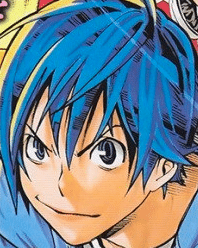 The first of the Ashirogi Muto duo. A talented artist, and a bit of an old-fashioned dope when it comes to love. He’s a very normal guy, probably the one kid everyone had in their elementary school who was great at drawing, and he starts out with very ordinary expectations for the world, but is convinced by Takagi to start drawing manga like his late uncle.
The first of the Ashirogi Muto duo. A talented artist, and a bit of an old-fashioned dope when it comes to love. He’s a very normal guy, probably the one kid everyone had in their elementary school who was great at drawing, and he starts out with very ordinary expectations for the world, but is convinced by Takagi to start drawing manga like his late uncle.
Takagi Akito
 The writer half of Ashirogi Muto. A genius who always held top scores in school and exams, he comes off slightly Light Yagami-esque and excels in writing complex sci-fi stories that dig at the darker parts of human nature. We do see parts where he genuinely struggles and flounders, which I really like because the duo feels relatable despite their talent, like that smart kid you knew in school who’s still human, after all.
The writer half of Ashirogi Muto. A genius who always held top scores in school and exams, he comes off slightly Light Yagami-esque and excels in writing complex sci-fi stories that dig at the darker parts of human nature. We do see parts where he genuinely struggles and flounders, which I really like because the duo feels relatable despite their talent, like that smart kid you knew in school who’s still human, after all.
Azuki Miho & Miyoshi Kaya
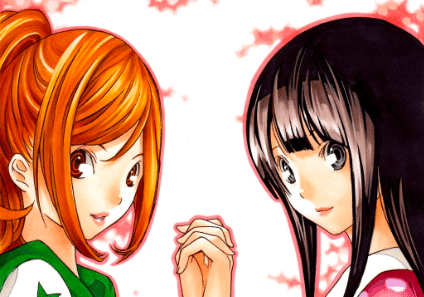 The two main girls. Miho is more quiet, and promises Mashiro not to meet each other until both their dreams (famous mangaka and voice actress) come true, at which point they will get married. Kaya is Miho’s good friend, and eventually begins dating Takagi. Both girls are unconditionally supportive of the boys’ dreams, and provide variety and subplot.
The two main girls. Miho is more quiet, and promises Mashiro not to meet each other until both their dreams (famous mangaka and voice actress) come true, at which point they will get married. Kaya is Miho’s good friend, and eventually begins dating Takagi. Both girls are unconditionally supportive of the boys’ dreams, and provide variety and subplot.
Hiramaru Kazuya
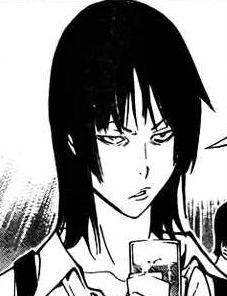 So this guy isn’t one of the main characters, but I thought he deserved an honorable mention because he is absolutely hilarious!! A genius talent who was an ordinary businessman, he decided on a whim to quit and draw manga, and actually turned out pretty good at it. The catch? He hates drawing manga, and all he wants to do is quit. His editor Yoshida is constantly motivating him through sly tactics such as blackmail, bribery and outright lies, and if manga had Oscars, I would nominate them for Best Supporting Actor, they are that funny.
So this guy isn’t one of the main characters, but I thought he deserved an honorable mention because he is absolutely hilarious!! A genius talent who was an ordinary businessman, he decided on a whim to quit and draw manga, and actually turned out pretty good at it. The catch? He hates drawing manga, and all he wants to do is quit. His editor Yoshida is constantly motivating him through sly tactics such as blackmail, bribery and outright lies, and if manga had Oscars, I would nominate them for Best Supporting Actor, they are that funny.
Other Characters
The mangaka come in all shapes and sizes, including but not limited to:
… and more. The editors are more normal, and you get to see examples of both “good” editors and “bad” editors, as well as how that can affect the mangaka.
Autobiographical Elements
While the work itself is fictional, you don’t need to be a genius to figure out that many parts of it mirror real life. After all, Ohba and Obata sensei are themselves a manga writing duo, and from their previous work Death Note it’s clear that they excel at darker, less mainstream series which require critical thinking. The main magazine is Weekly Shounen Jump, the very same magazine that both Death Note and Bakuman ran in. Obata sensei even claims “the whole time […] I felt like I was drawing about my everyday life” in an interview by Shounen Jump Alpha.
Of course, my favorite part is that much of the info about the manga industry is accurate. The questionnaires are a real thing. Center color pages. Names. G-pens. All the different factors that go into deciding whether or not to give a series the axe. Even little details like how Ashirogi use their final chapters to test out different approaches for their next series, it’s all the real deal. 🙂
Fun fact: many of the editors in the manga are based on real editors in Shueisha, to the point where their names haven’t even changed! Their appearances are also said to be very similar. Real manga titles are often mentioned in addition to made-up ones, and many fans believe the made-up ones allude to other titles/popular authors running at the time.
Scanlation Quality
Unfortunately, scanlation quality of Bakuman is awful. The majority of chapters were done by SleepyFans, a speed scanlation group, which means that not only are they using low quality magazine scans, they also value speed over quality… and it shows. Various groups have picked up and dropped segments of Bakuman in the past, but now the majority of chapters up until chapter 116 are SleepyFan chapters, at which point the group shut down.
The scans flail a bit with different groups of varying quality until chapter 123, when Muda Scantrads, Red Hawk Scanlations, and I Eat Manga team up and pretty much take the series all the way until the end. Red Hawk splits into branch group Red Hawk NEO before the finish, but it’s basically the same people, and the quality is noticeably better than it was with SleepyFans.
Honestly, the entire Bakuman series has been officially translated by Viz and can be found on Amazon in either Kindle or paperback editions. At 20 volumes the price can be a bit steep, but I recommend at least checking your local library or bookstore to see if they have it in stock, because the first 14 volumes will be a much better experience quality-wise compared to the speed scans.
Reread Value
Pretty good. I would go as far as to say that it may even be better the second time around because you have an idea of what’s going to happen, so you can relax and enjoy the characters’ struggles, whereas the first time around you might be really invested in a particular outcome and end up throwing a fit when it doesn’t happen. If you read a lot of Jump manga it’s also fun to go back through the fictional mangaka/series and try to guess which ones were inspired and/or based off of which real life Jump author(s) and series.
Similar Works
I will come right out and say it: there isn’t really any manga like Bakuman in terms of genre. It has completely dominated the “manga about manga” space, and the few stragglers out there don’t even begin to compare.
If you’re looking for a similar inspirational/follow your dreams type manga, the sports/board games ones mentioned above are all hugely popular. For more indie genres, Beck is a good one about starting a band, and Cat Street is one of my personal favorites for showbiz, although it’s a lot more angsty with much more romance involved (being shoujo). For classical music, Piano no Mori is my personal favorite, with no romance involved. Nodame Cantabile has more romance if you’re into the romance part.
Now loading…
If you don’t really care about the subject matter and just like the art, I recommend you check out some of the artist’s other series, notably All You Need Is Kill, a seinen sci-fi, and of course Death Note, the most famous work by this author/artist duo. They are coming out with a new series soon called Platinum End which I am eagerly looking forward to.
Manga Within a Manga
If you are looking for a series similar to the made-up series within Bakuman…
| Crow: | One Piece, Bleach |
| Otters 11: | Otters 11 One-shot, maybe Angel Densetsu |
| Money and Intelligence: | Liar Game, Mirai Nikki |
| Detective Trap: | Kindaichi Case Files (old-school art), Detective Conan (cartoony art), Majin Tantei Nougami Neuro |
| Tanto: | Doraemon |
| PCP: | Nothing that I know of. 🙁 |
| Classroom of Truth: | Kamisama no Iutoori (Fujimura Akeji) |
| Reversi: | Code Geass (highly recommend anime over manga) |
Conclusion
An excellent series not only for its story, but also for its educational value. Read if:
- You’re in the mood for an inspirational chase-your-dreams story
- You like manga and want to learn more about it!
- You’d like something light, fun, and not too dark/angsty
Do not read if:
- You have zero interest in the manga industry as a whole
- You hate series with a lot of text
- You were hoping for a lot of serious romance
Again, I would steer clear of the scanlations in general, see if you can borrow or purchase an official Viz copy somewhere!
Similar Articles
Manga Review: Mushishi
Manga Review: Orange (Takano Ichigo)
Manga Review: Onani Master Kurosawa
Trends: Virtual Reality in Manga
Infinite Scroll for Webtoons

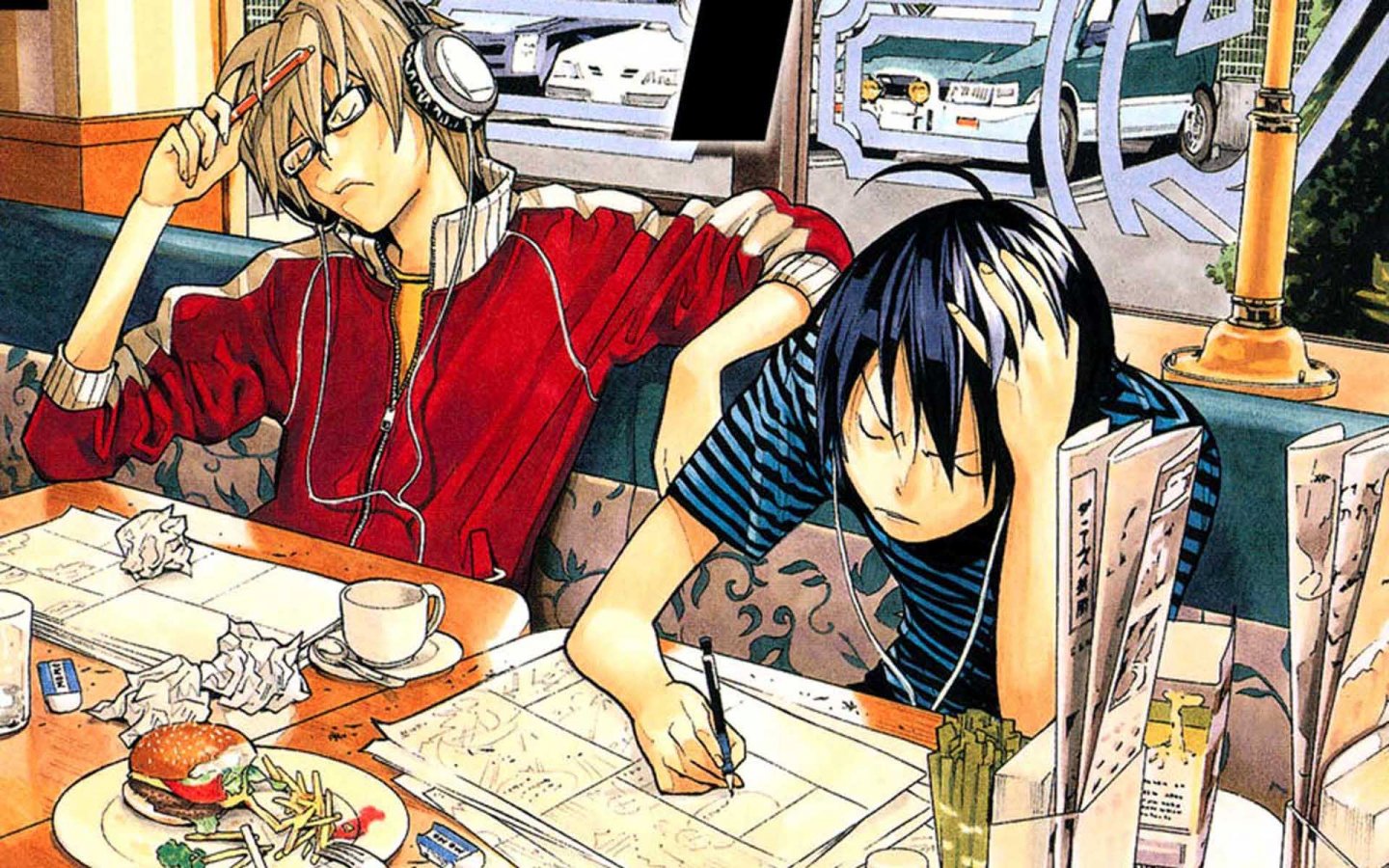
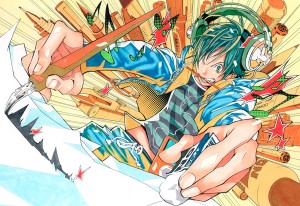
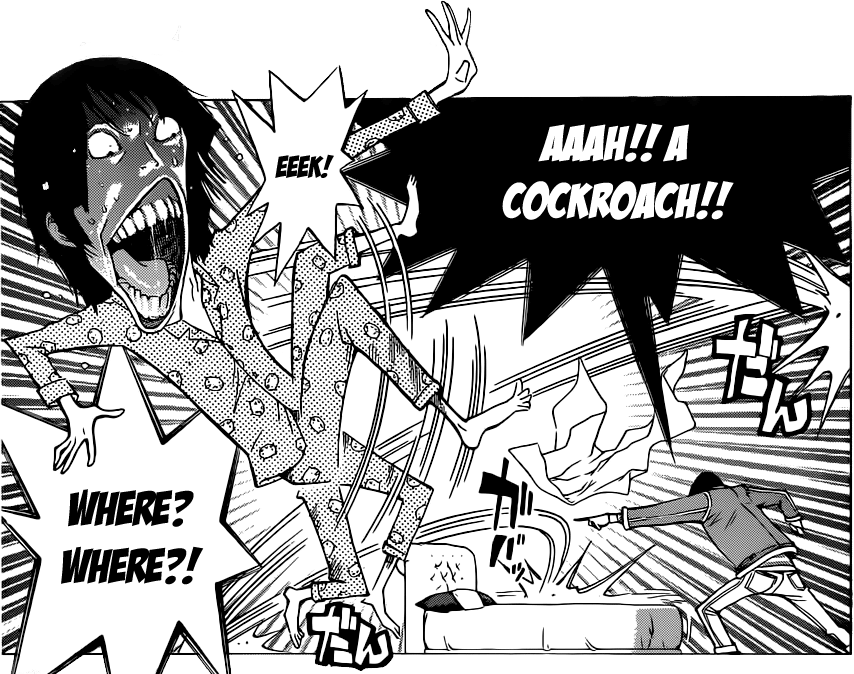
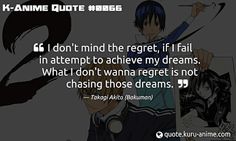

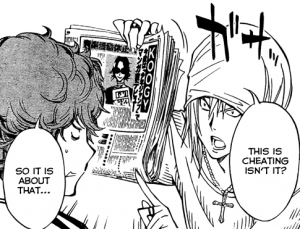
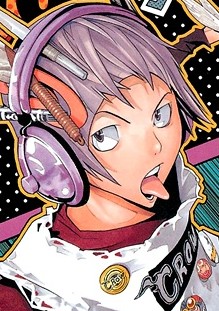

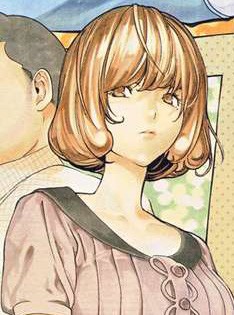
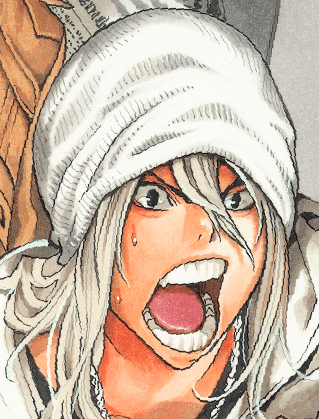
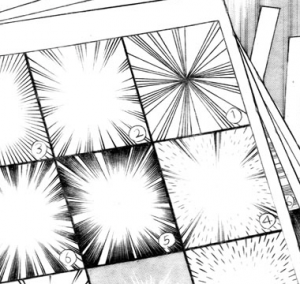
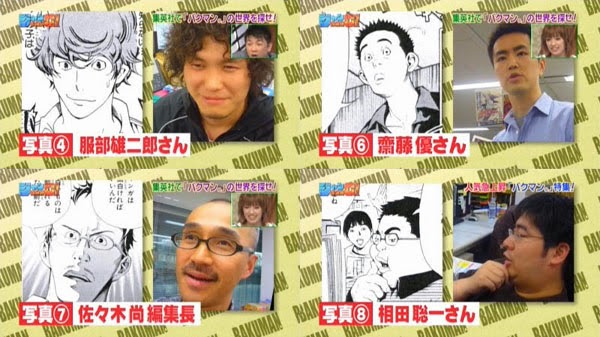
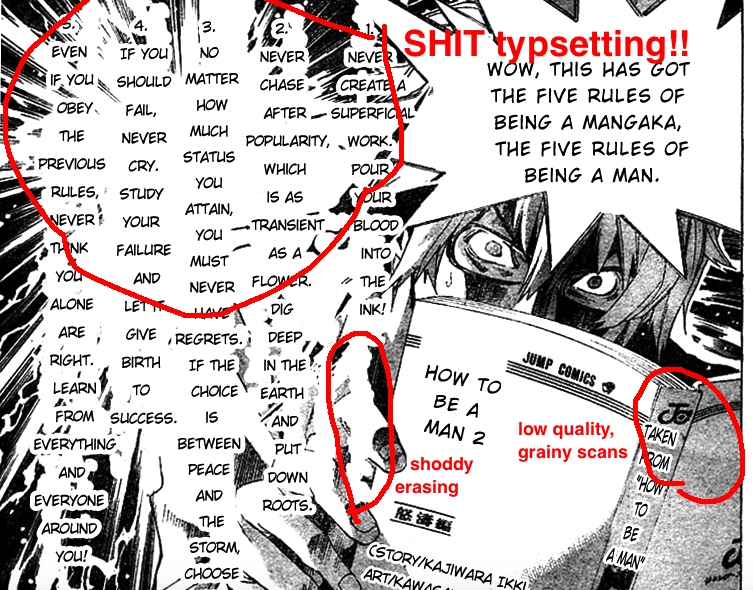
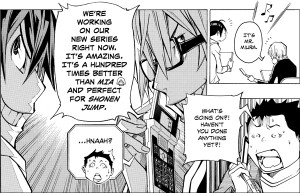
Leave a comment